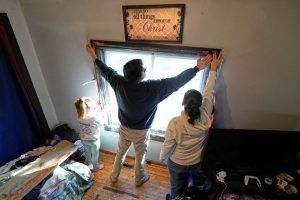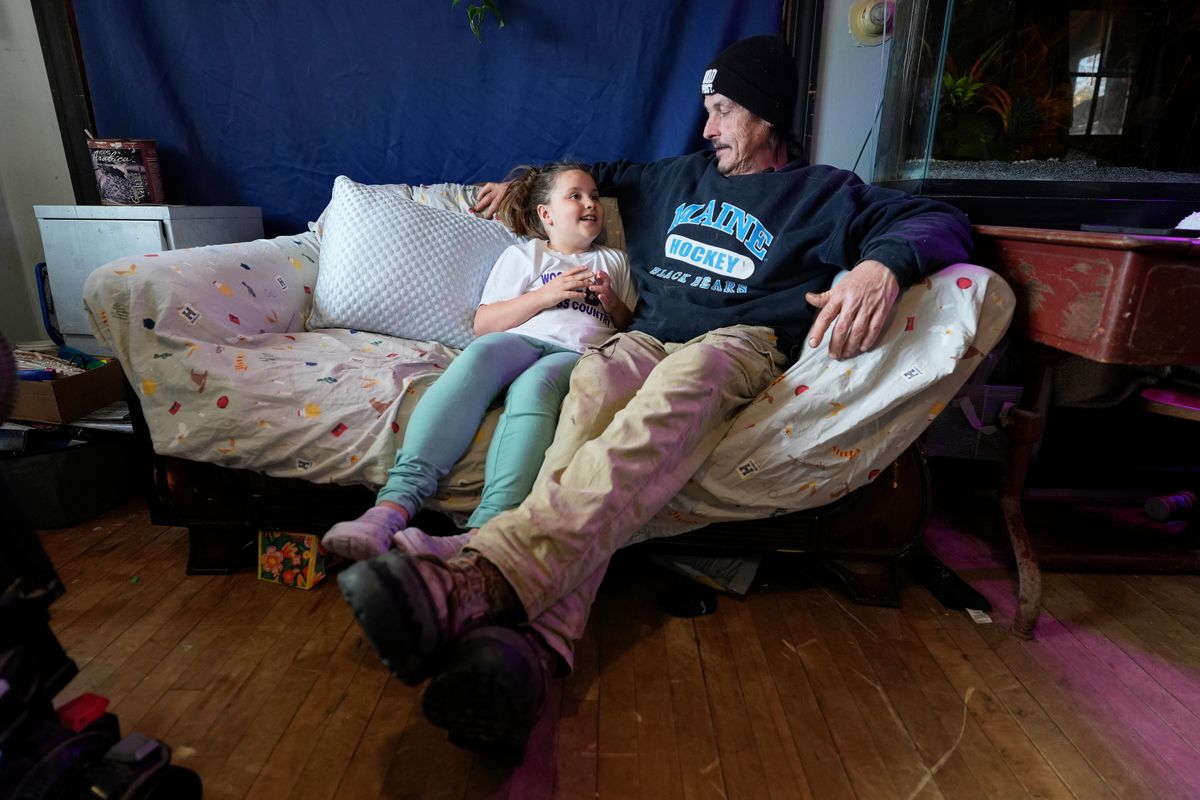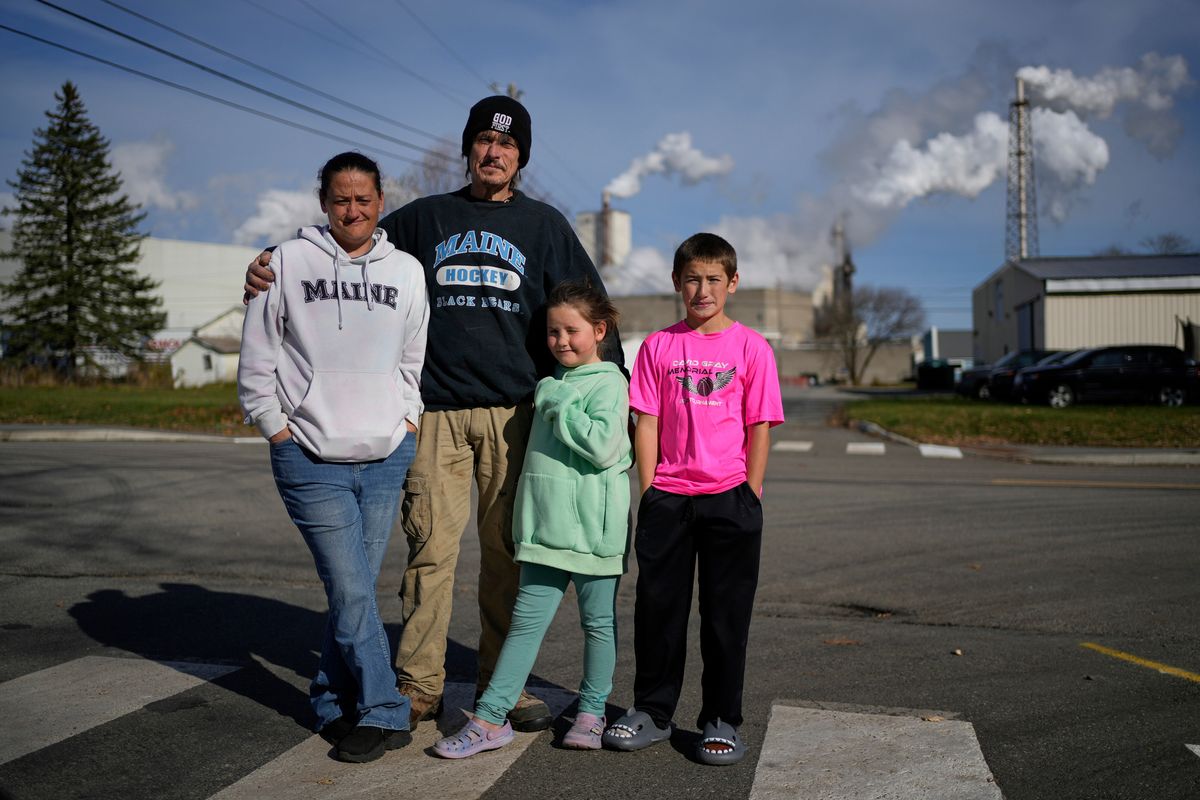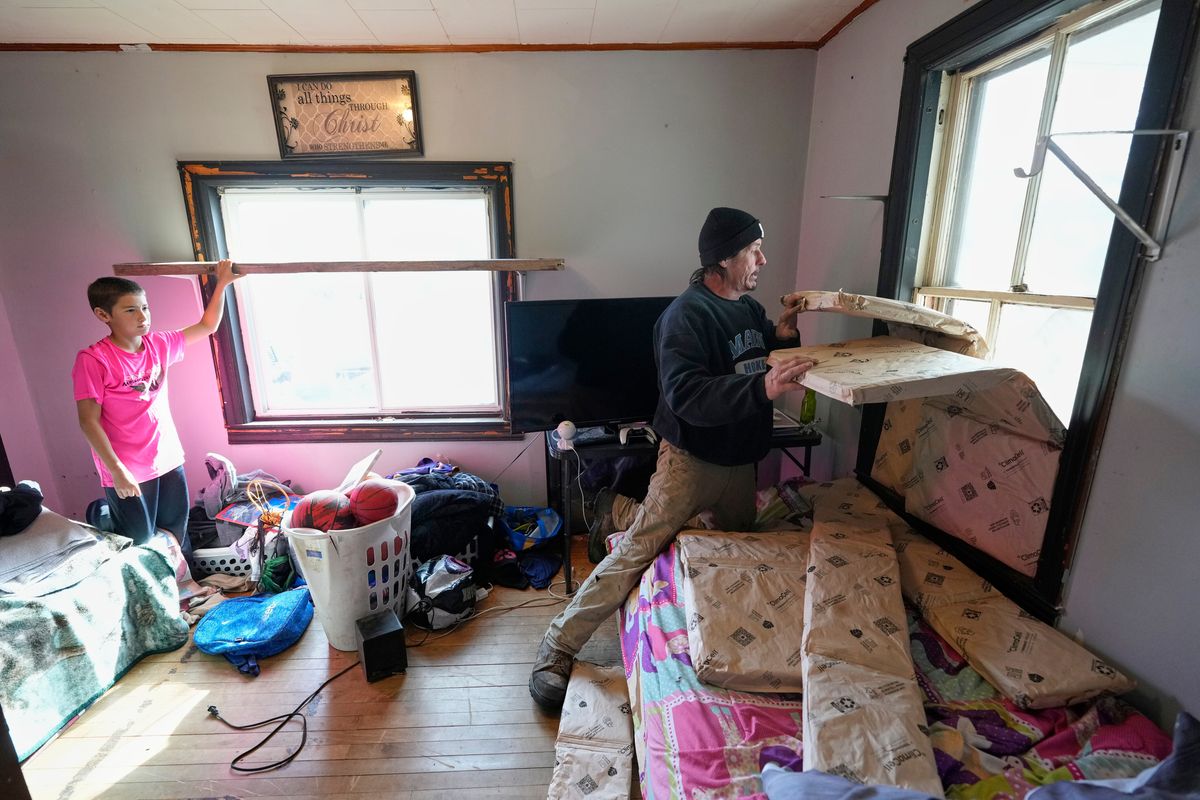BAILEYVILLE, Maine (AP) — Setting the thermostat at 60 degrees used to be no problem for Gerard Berry, even during harsh Maine winters. Then he got sick with stomach cancer and struggled to stay warm as he lost weight.
“I used to tell the kids, ‘Put a sweatshirt on.’ But when I got sick, I got really thin, and we had to push it up a lot more,” said Berry, 47. “We burned a lot more fuel last year than we ever did.”
Berry’s family of seven got help filling their oil tank last winter. But Maine officials and those in other states are scrambling to sort out their options in light of the federal government shutdown.
An emergency assistance program that typically starts Nov. 1 and helps 7,000 Maine families per year remains on hold. But MaineHousing is reallocating $2.2 million earmarked for weatherization to make initial payments for roughly 4,000 households that applied early to the broader Low-Income Home Energy Assistance Program.
Borrowing funds from one program to pay for another is not ideal, but “this will get the trucks rolling,” said Dan Brennan, director of the quasi-state agency. Over the next few weeks, households that applied in August and September will have money added to their accounts with fuel vendors.
“This will help prevent heating emergencies for our most vulnerable neighbors, family members, and friends,” Brennan said.
Commonly called LIHEAP, the $4.1 billion program helps 5.9 million households nationwide heat and cool their homes. While the uncertainty over its future is raising concerns across the country, New England officials are particularly concerned given the region’s reliance on oil for heat. Electric and natural gas companies generally are barred from pulling the plug, but more than half of Maine households rely on oil.
In Baileyville, a small town near the Canadian border, Berry puts plastic over his windows and blankets under the door to block the wind. In addition to the emergency assistance, he has benefited from a fuel donation program in Hancock and Washington counties known as “The Heating and Warmth Fund,” or THAW. His church community also supported him through his illness, which included a severe lung infection, sepsis and surgery to remove part of his stomach and colon.
“The thing about having faith is, you don’t have to worry. Like, God’s got me no matter what,” he said. “But I know that a lot of people are really freaking out. They’re really nervous, and it’s sad to me.”
Berry considers himself “very conservative” but said he thinks both Republicans and Democrats are being manipulative. His said his illness prompted him to focus less on Washington and more on his local community.
“Hopefully people are waking up, but hopefully they wake up in the right way,” he said. “Instead of waking up and being like, ‘Let’s start a revolution!’ Let’s wake up and let’s go shake hands with our neighbors.”
Kelli Casey, a program coordinator at Aroostook County Action, oversees heating aid for three counties, including Berry’s location. Her office has been getting more than 700 calls a day. One recent caller was 94 years old; another was a young single mother with a two-week-old baby who was going into her car to warm up.
“You hear the panic and the distress in their voices,” she said Wednesday. “And it hasn’t even reached the seasonably cold weather yet. So add a month to this, and we’re going to be in a dire situation.”
Even if the government reopens this week, it likely will take weeks to get money to fuel vendors, Casey said. For now, the agency is relying on donations, but those funds are limited.
“We are going to see people die in their homes if we do not do something,” she said. “I think people need to understand how fragile this situation is.”
___
Ramer reported from Concord, New Hampshire.
By HOLLY RAMER and ROBERT F. BUKATY
Associated Press




